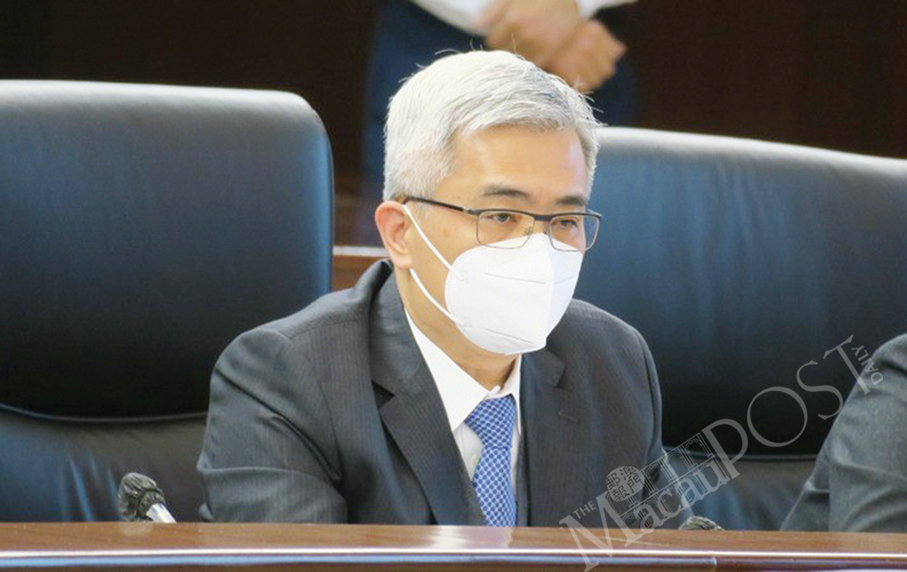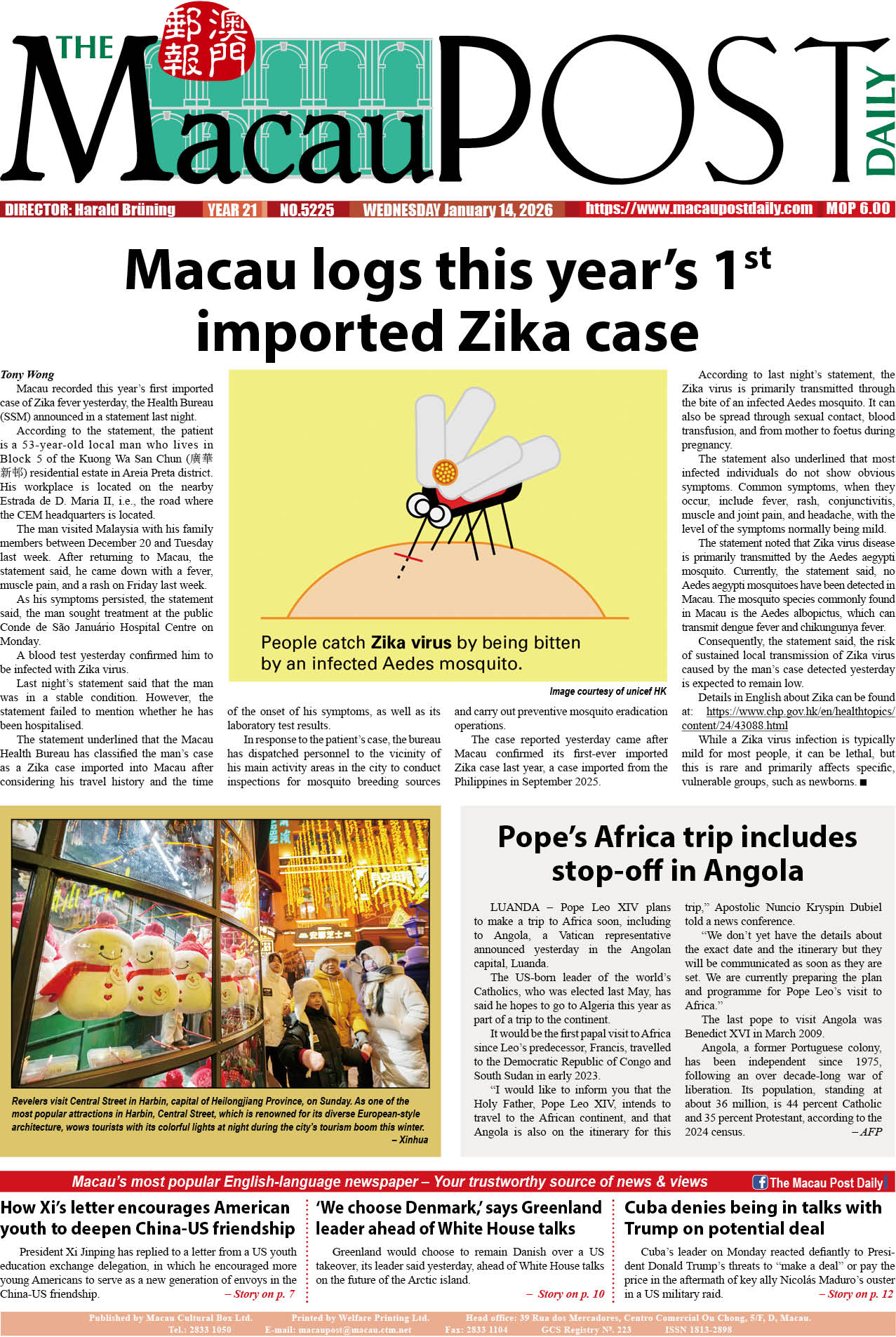The Legislative Assembly (AL) yesterday unanimously passed the outline of a local government-initiated bill proposing a string of amendments to the national security law of the Macau Special Administrative Region (MSAR), which aims to strengthen the MSAR government’s ability to prevent external forces from interfering in local affairs.
The bill also aims to address shortcomings and close loopholes in the current version of the national security law, thereby ensuring that the MSAR’s legal system on the protection of national security will be as capable of safeguarding national security as the respective pieces of legislation in the Chinese mainland and the Hong Kong Special Administrative Region (HKSAR).
Secretary for Security Wong Sio Chak introduced the outline of the amendment bill during a plenary session in the legislature’s hemicycle yesterday.
After yesterday’s passage of its outline, the amendment bill will be passed to one of the legislature’s standing committees for article-by-article review, after which it will be resubmitted to another plenary session for its second and final debate and article-by-article vote.
After the article-by-article passage of the amendment bill, the government will promulgate the bill in the Official Gazette in due course. The amendment bill proposes that it will take effect on the day after its promulgation in the Official Gazette.
Macau enacted its national security law – the Law on Safeguarding National Security – back in 2009, based on the Article 23 requirement of the Macau Basic Law.
Macau’s national security law, Law 2/2009, has not been amended since its enactment in early 2009, because of which the bill, whose outline was passed yesterday, proposes the first amendments to the Law on Safeguarding National Security, which took effect on March 3, 2009.
Article 23 of the Macau Basic Law states that the MSAR shall enact laws, on its own, to prohibit any act of treason, secession, sedition, subversion against the Central People’s Government, or theft of state secrets, to prohibit foreign political organisations or bodies from conducting political activities in the MSAR, and to prohibit political organisations or bodies in the MSAR from establishing ties with foreign political organisations or bodies.
Interrelation of traditional & non-traditional security threats
During yesterday’s plenary session, Wong said that the security landscape globally and in countries and regions surrounding Macau has seen profound changes over the past decade or so since the implementation of the local national security law. Given the ongoing interrelation of traditional security threats and non-traditional ones, Wong said, the security and development of the nation including Macau are facing new and more serious challenges.
Wong underlined that Macau’s national security law needs to be improved with the aim of enabling the local government to continuously fulfil its constitutional responsibility required by Article 23 of the Macau Basic Law, and to comply with the central government’s holistic approach to national security.
The central government’s holistic approach to national security put forward by President Xi Jinping lists various non-traditional threats to national security that the country is facing, in addition to the traditional ones.
Consequently, Wong pointed out, the Macau government carried out a public consultation between August 22 and October 5 this year on the draft of its national security law’s amendment bill. Afterwards, the government published a report on November 7 summarising the opinions and suggestions gathered during the public consultation process, Wong noted, underlining that the local government has drafted the amendment bill after fully studying the opinions and suggestions submitted during the consultation process.
‘Fundamental & core’ law
Wong underlined that the local government expects the improved version of the local national security law to become the “fundamental and core” law of Macau’s legal system on the protection of national security, a change from the current version which is merely a penal law that punishes offences endangering national security, he said.
Wong said that the amended version of the local national security law will enable the local government to better prevent the occurrence of crimes endangering national security, a change from the current version which generally only enables the local government to punish offences that have already been committed, he said.
In addition, Wong said, the amended version of the law will enable the local government to more effectively prevent external forces from interfering in the affairs of the MSAR.
According to Wong, the amendment bill proposes to extend the scope of certain existing criminal offences listed in the local national security law, as well as to add a new criminal offence to the law.
Wong said that the bill proposes to “improve” the scope and definition of the crime of secession, as defined by Article 2 of the current version of Law 2/2009, and the crime of sedition, as enshrined in Article 4 of the law’s current version.
The bill, according to Wong, also proposes that subversion targeting the Central People’s Government, as defined by Article 3 of the current local national security law, should be extended to subversion against the political power ruling the nation.
In addition, Wong said, the amendment bill proposes to add the new crime of instigating or supporting sedition.
Moreover, the amendment bill also proposes to change the name of the crime of “theft of state secrets”, as defined by Article 5 of the current version of Law 2/2009, to “violation of state secrets”, Wong said.
The amendment bill proposes that secession or subversion by any illegal means, i.e., including non-violent illegal means, will also be punishable, a change from the current version of the local national security law which only punishes the two crimes by violent or other grave illegal means.

Secretary for Security Wong Sio Chak addresses yesterday’s plenary session in the Legislative Assembly’s (AL) hemicycle. – Photo courtesy of TDM





